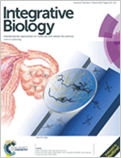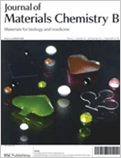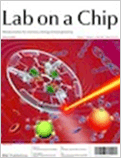













[56] Immunology Letters, 172, 21–28, (2016)
Intrinsic features of the CD8α− dendritic cell subset in inducing functional T follicular helper cells
Changsik Shin, Jae-A Hana, Bongseo Choi, Yoon-Kyoung Cho, Yoonkyung Do, Seongho Ryu*
• Pre-Tfh cells are found proximal to CD8α− DCs in the MZ bridging channels.
• The role of IL-6 secreted from CD8α− DCs is minor in inducing Tfh cells.
• CD8α− DCs dominantly induce Tfh cells over other APCs.
[55] Micromachines, 7, 2, 32, (2016)
Challenges and Opportunities of Centrifugal Microfluidics for Extreme Point-of-Care Testing
Issac J. Michael, Tae-Hyeong Kim, Vijaya Sunkara 1 and Yoon-Kyoung Cho *
By identifying the finest difference between the point-of-care testing and extreme point-of-care infrastructure, this review captures the evolving diagnostic needs of developing countries paired with infrastructural challenges with technological hurdles to healthcare delivery in extreme point-of-care settings. In particular, the requirements for making centrifugal diagnostic devices viable in developing countries are discussed based on a detailed analysis of the demands in different clinical settings including the distinctive needs of extreme point-of-care settings
[54] Analyst, 141, 2, 371-381, (2016)
Emerging techniques in isolation and characterization of extracellular vesicles and their roles in cancer diagnostics and prognostics
Vijaya Sunkara+, Hyun-Kyung Woo+ and Yoon-Kyoung Cho*
We present an overview of the current EV isolation and characterization methods in addition to their applications and limitations. Furthermore, EVs as the potential emerging biomarkers in cancer management and their clinical implementation are briefly discussed.
[53] Anal.Chem. 87, 15, 7865–7871, (2015)
Rapid and Automated Quantification of Microalgal Lipids on a Spinning Disc
Yubin Kim, Su-Nam Jeong, Bolam Kim, Dong-Pyo Kim*, and Yoon-Kyoung Cho*
We have developed a fully integrated centrifugal microfluidic device for rapid on-site quantification of lipids from microalgal samples. The fully automated serial process involving cell sedimentation and lysis, liquid-liquid extraction, and colorimetric detection of lipid contents was accomplished within 13 min using a lab-on-a-disc.
[52] Biosensors & Bioelectronics, 70, 115–121 (2015)
An electrochemical-sensor system for real-time flow measurements in porous materials
Cédric Bathany+, Ja-Ryoung Han+\, Kameel Abi-Samra, Shuichi Takayama, and Yoon-Kyoung Cho*
Chronoamperometric recordings of a solution in movement mediated by a paper wicking are converted into a given signature hydrodynamic conditions of the porous material. The electrochemical sensor is used to screen porous material characteristics and test fluid flow modifiers potency.
[51] Lab Chip, 15, 2, 478-485, (2015)
Electrospun TiO2 nanofibers integrated lab-on-a-disc for ultrasensitive protein detection from whole blood
Won Seok Lee+, Vijaya Sunkara+, Ja-Ryoung Han, Yang-Seok Parka
and Yoon-Kyoung Cho*
We present a highly efficient lab-on-a-disc composed of TiO2nanofibrous mat for sensitive detection of serum proteins with a broad dynamic range, with only 10 μL of whole blood within 30 min. The TiO2 nanofibers provide high specific surface area as well as active functional groups to capture large amounts of antibodies on the surface.
[50] Analyst, 140, 2, 616-622, (2015)
Significantly enhanced antibacterial activity of TiO2 nanofibers with hierarchical nanostructures and controlled crystallinity
Won Seok Lee, Yang-Seok Park, and Yoon-Kyoung Cho*
In this paper, we demonstrated significantly enhanced antibacterial activity of hierarchical anatase TiO2 NFs against Staphylococcus aureus in the presence of UV light. Furthermore, the uniform deposition of a large quantity of Ag nanoparticles on the surface of the TiO2 NFs ensured a significant enhancement of the antibacterial performance, even under dark conditions.
[49] Analyst, 140, 1, 113-126, (2015)
Surface Charge, Electroosmotic Flow and DNA Extension in Chemically Modified Thermoplastic Nanoslits and Nanochannels
Franklin I. Uba, Swathi R. Pullagurla, Nichanun Sirasunthorn, Jiahao Wu, Sunggook Park, Rattikan Chantiwas, Yoon-Kyoung Cho, Heungjoo Shin and Steven A. Soper
We report the surface modification of thermoplastic nanochannels and an assessment of the associated surface charge density, zeta potential and electroosmotic flow (EOF). Carboxylated PMMA nanochannels were efficient for the transport and elongation of λ-DNA while these same DNA molecules were unable to translocate through aminated nanochannels with lower surface charge density and zeta potential.
[48] Anal. Chem., 86, 22, 11349-11356, (2014)
All-in-One Centrifugal Microfluidic Device for Size-Selective Circulating Tumor Cell Isolation with High Purity
Ada Lee, Juhee Park, Minji Lim, Vijaya Sunkara , Shine Young Kim , Gwang Ha Kim , Mi-Hyun Kim , and Yoon-Kyoung Cho*
In this paper, we propose a centrifugal-force-based size-selective CTC isolation platform that can isolate and enumerate CTCs from whole blood within 30 s with high purity. Overall, our CTC isolation device enables rapid and label-free isolation of CTCs with high purity, which should greatly improve downstream molecular analyses of captured CTCs.
[47] ACS Appl. Mater. Interfaces., 6, 15, 12189−12195, (2014)
Hierarchically-structured suspended TiO2 nanofibers for use in UV and pH sensor devices
Won Seok Lee, Yang-Seok Park, and Yoon-Kyoung Cho*
This paper demonstrates the first semiconductor-based nanofiber sensor suspended on carbon electrodes that has achieved by a relatively simple and cost-effective electrospinning method. Furthermore, these sensors demonstrate a high sensitivity, as well as a stable ohmic contact, due to the large surface area of the TiO2 NWs and the carbon-carbon contact between the suspended TiO2/C NFs and carbon electrodes.
[46] Anal. Chem., 86, 8, 3841–3848, (2014)
A Fully Integrated Lab-on-a-Disc for Nucleic Acid Analysis of Food-borne Pathogens
Tae-Hyeong Kim+, Juhee Park+, Chi-Ju Kim, and Yoon-Kyoung Cho*
This paper demonstrates that molecular detection of food-borne pathogens can be integrated into a single, compact device with great potential as a point of care diagnostic tool. Three main functions, DNA extraction, isothermal recombinase polymerase amplification (RPA), and detection, are integrated on a single device for the molecular detection of Salmonella.
[45] Integr. Biol., 6, 3, 267-276, (2014)
"RhoA and Rac1 play independent roles in lysophophatidic acid-induced ovarian cancer chemotaxis"
Hyundoo Hwang+, Eung-Kyun Kim+, Juhee Park, Pann-Ghill Suh* and Yoon-Kyoung Cho*
Roles of small GTPases in lysophosphatidic acid-induced chemotaxis of SKOV3 ovarian cancer cells were first investigated using a novel microfluidic assay platform. Real-time tracking of individual cells in the rapid-prototyped multilevel microfluidic devices provided us substantial quantitative information about the chemotaxis of the cells under a linear and stable concentration gradient. This integrative study of cellular chemotaxis would provide us new biological insights, which could not be obtained through the traditional tools for cell migration assays.
[44] Journal of Materials Chemistry B. 1, 44, 6020-6026, (2013)
Dehydrated Aqueous Two-Phase System Micro-domain Retain Shape upon Rehydration to Allow Patterned Reagent Delivery to Cells
C´edric Bathany, Juhee Park, Yoon-Kyoung Cho* and Shuichi Takayama*
Aqueous reagent solution micro-domains with sharp boundaries and defined shapes are created over cell monolayers within an immiscible bulk aqueous phase through rehydration of freestanding and portable dried reagent patches of the corresponding shape....
[43] Journal of Colloid and Interface Science, 411, 1, 122-128, (2013)
"Aminosilane layers on the plasma activated thermoplastics: influence of solvent on its structure and morphology"
Vijaya Sunkara and Yoon-Kyoung Cho*
The molecular mechanism of the interaction between silane, e.g. APTES, with the plasma activated thermoplastic surfaces was investigated. The effect of the type of solvent during the silane deposition step on the thickness, surface morphology, stability and chemical properties of the APTES layer on plasma treated thermoplastics was explored.
[42] Scientific Reports, 3, 1, 2255, (2013)
Make Caffeine Visible: a Fluorescent Caffeine “Traffic Light” Detector
Wang Xu, Tae-Hyeong Kim, Duanting Zhai, Jun Cheng Er, Liyun Zhang, Anup Atul Kale, Bikram Keshari Agrawalla, Yoon-Kyoung Cho* and Young-Tae Chang*
We report a novel aqueous phase fluorescent caffeine sensor named Caffeine Orange which exhibits 250-fold fluorescence enhancement upon caffeine activation and high selectivity. To utilize this probe in real life, we developed a microfluidic device to make caffeine detection quick, sensitive and automated.
















